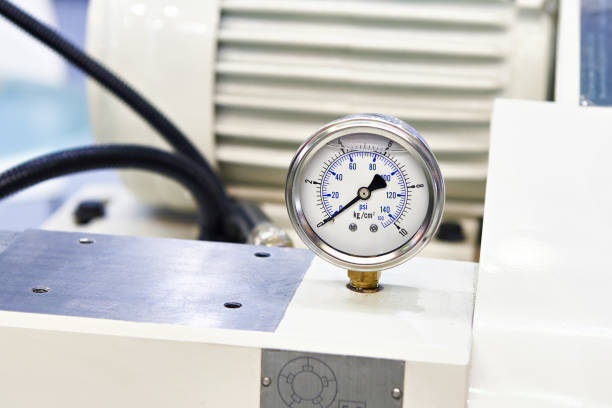Low Boiler Pressure in Heating System:Causes,Effects & Ways to Fix It

We feel bad when we lose our wallets, mobile, or jewelry. But what if we find our boiler losing pressure. Loss of Boiler Pressure can be one of the major and common issues that can affect your heating and hot water supply a lot. So whether you have faced this problem with your heating unit or not, you must get yourself aware of it. Here, there are a few questions that might be popping up in your mind.
What is Boiler Pressure?
And, why do boilers lose pressure?
How can it affect my heating system?
Is there any way I can fix it?
Let me answer you one by one to get your concept clear about Low Boiler Pressure.
What is Boiler Pressure?
As we all know hot water circulates through your boiler, moves through the pipes, and after that reaches the radiators. Thereby, it ensures that these radiators get their sufficient supply of hot water so that they can well perform their job of heating the room.
Nowadays, modern Combi boilers with a sealed system are mostly in use by UK homeowners, as they do the job of both heating and hot water supply. Though the amount of water is supposed to remain constant within this impenetrable system, the pressure of water might vary for some reason or the other.
So this pressure of hot water circulating through this sealed boiler or central heating system is called the Boiler Pressure. But don’t confuse it with water pressure, as it is simply the pressure of water running through the taps. More accurately, it can be taken as the balance of water and air in that enclosed central heating system which determines the Boiler pressure.
And, why do boilers lose pressure?
For providing effective boiler service, the boiler should have constant pressure. But at times, boilers do lose pressure, and it’s a major problem with modern Combi boilers. Loose of Boiler Pressure indicates the water level in the central heating system going down. But if, its’ a sealed system, running the same amount of hot water within it, how can that boiler pressure go down.
There are of course certain reasons which can make this happen and you should be fully aware of it such as:
1. Water Leakages:
If for any season, water is escaping through that enclosed central heating system, Loose of Boiler Pressure is definite to happen. Anyways, it’s not that easy to find out such leakages, as most of the pipeworks in your unit are not that accessible. Also, check whether the radiators and vents have too much moisture around them, as that might also indicate a leakage if the moisture is not due to condensation caused by temperature differences.
2. Too much Air in the Radiators:
Mostly due to the build-up of sludge in the system or for the incorrect topping up of the boiler, you can find air bubbles developing inside the radiators. This kind of air in the radiators prevents effective hot water circulation in the heating system. It makes the boiler lose pressure, thereby affecting the warm air supply to your home.
3. Bleeding Radiators:
On the other hand, bleeding your radiators and releasing out air through them can make your Boiler pressure low. It happens mostly at the end of the summertime when we normally bleed our radiators to get an effective supply of heat and hot water during the winter. However,it can be adjusted by repressurizing the boiler.
4. Fault in your Pressure Relief Valve:
If your pressure relief valve is not functioning properly, it will not allow the boiler to shut down properly, instead will release a lot of pressure. A defective pressure valve will get your boiler water pressure irregular and unmanageable. So, if you find that water is moving out of the pressure relief drain, you need to get the issue with your pressure relief valve sorted out.
5. Problem with the Expansion Vessel:
Expansion vessels/tanks do the job of keeping the water pressure stable in your Combi boiler when the water gets heated or cooled. But if there is an issue with your boiler expansion vessel, the boiler water pressure can go too turbulent or falter.
6.Inaccurate Pressure Gauge:
Last but not the least, you need to be sure whether your pressure gauge is showing the right reading or not. A damaged or broken pressure gauge can give you the misconception that the pressure level of your furnace has gone too high or low.
How can it affect my heating system?
Though your boiler can lose pressure for various reasons, this issue is not threatening to damage anything with your heating unit. But there are certain disadvantages to it, which are as follows:
1. Underperforming Heating System:
With low pressure, your boiler will require more time and energy to heat the water and also your room. This will relatively reduce the performance of your heating system, hardly leaving you with any hot water and heat.
2. High Heating Bills:
As your boiler has to struggle a lot to heat your room and the water because of the low pressure, it needs to utilize more energy. Thereby, it makes the figures in your energy bills go up.
3. Effects Boiler Longevity:
Ignoring this issue and leaving your boiler with low pressure for a long can even affect the boiler’s longevity. If your boiler pressure drops down too much, it can make your central heating system stop functioning
Is there any way I can fix it?
If you find your boiler pressure gauge reading, going below the green zone mark of 1 bar-1.5 bars, it specifies that your boiler has got Low Boiler pressure. If you have the idea of fixing it yourself, you first need to go through the manuals, as different boiler systems do work differently. But, apart from having a detailed look at the company manuals, you can also check the instructions on the Control Panel and on the boiler brand’s website and videos to find out how you can repressurize the boiler by letting more water enter into the system from the water main’s supply through the filling loop.
Though the filling loops can differ as per your boiler design, there is a basic way to do it.
The Most Common Way You can Repressurize your Boiler
You first need to switch off your boiler and wait till it cools down. Once you are fully sure that both the ends of the filling loops are securely attached, you need to open the valves on both sides and allow cold mains water to enter the system till the pressure gauge gives the reading of 1.5 bars. Finally, you need to close both the valves carefully one after another, and then its’ all done.
Get A Professional Help
Following these steps can get help you solve the problem of putting it back to the normal pressure. But if in case you face any difficulty doing it, or if you find your boiler again losing pressure after repressurizing it, that might be an issue with your boiler or heating system. Don’t stick to the D-I-Y processes that time, but better get a registered and reliable gas engineer from F.A.S Plumbing & Heating Ltd. to fix it for you.





